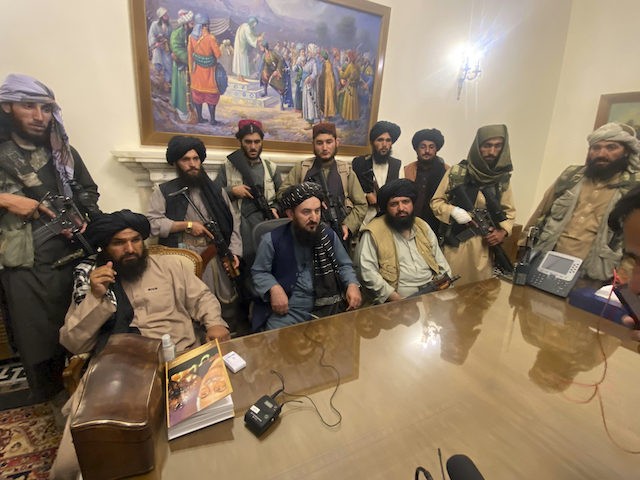The International Monetary Fund (IMF) said Wednesday that it will block Afghanistan from accessing $460 million in emergency monetary reserves that were scheduled to be disbursed next week.
The IMF said it took the action at the urging of the U.S. government, which does not want the Taliban to gain control of those funds.
“As is always the case, the IMF is guided by the views of the international community. There is currently a lack of clarity within the international community regarding recognition of a government in Afghanistan, as a consequence of which the country cannot access SDRs or other IMF resources,” said IMF spokesman Gerry Rice.
The suspended Special Drawing Rights (SDR) for Afghanistan were part of the IMF’s program to pump $650 billion in liquidity into the pandemic-ravaged global economy. Afghanistan, one of the IMF’s 190 member nations, was due to get its proportional 0.07 percent share of the $650 billion total.
The socialist regime of dictator Nicolas Maduro in Venezuela, and the military junta in Myanmar, are also blocked from accessing their SDRs because they lack the necessary international recognition as legitimate governments.
A group of Republican House members wrote to Treasury Secretary Janet Yellen on Tuesday and asked her to use America’s leverage with the IMF to keep its monetary reserves out of Taliban hands.
“The potential of the SDR allocation to provide nearly half a billion dollars in unconditional liquidity to a regime with a history of supporting terrorist actions against the United States and her allies is extremely concerning,” wrote the GOP group, led by Rep. French Hill (R-AR).
“Since 2020, we have raised concerns over the potential for vast sums to flow to evil regimes through an SDR allocation. We have also warned about the risks of an allocation in the absence of binding accountability mechanisms,” they noted.
The Republican congressmen noted that billions of IMF dollars are still slated for “state sponsors of terror, like Iran and Syria, and oppressive regimes such as China, Russia, and Belarus.”
The Treasury Department told Congress over the weekend that the Taliban would not be able to access $9 billion in foreign currency reserves held by the Afghan central bank outside the country. Administration officials confirmed the freeze in statements to the media Tuesday.
The IMF action is premised on the Taliban lacking international recognition as the government of Afghanistan, so if international recognition is forced by powerful allies of the Taliban such as China and Russia, the money spigot could conceivably open.
“We can say the accessible funds to the Taliban are perhaps 0.1 to 0.2 percent of Afghanistan’s total international reserves. Not much,” Afghan central bank chief Ajmal Ahmady said Wednesday. Ahmady fled the country aboard a military aircraft Sunday.
Ahmady predicted to the BBC that Afghanistan’s “economic situation will deteriorate” as international financial aid declines, inflation rises, and the currency depreciates. Afghanistan’s currency has already fallen to record lows now that shipments of dollars into the banks have been suspended.

COMMENTS
Please let us know if you're having issues with commenting.